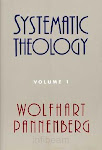4 weeks ago
Sunday, 30 March 2008
Eat My Grandma?
In many Eastern religions meat-eating is prohibited. Even more so if the animal in question is a cow. Many who endorse samsara (the belief in a cycle of re-births) believe animals can be human relatives and loved ones incarnate.
It’s no surprise they follow a vegetarian diet. Everyone can understand the dislike of the idea of eating your relative, say, your Grandma. And if you believed that any given animal can, in fact, be your Grandma, abstaining from meat seems a rather reasonable option.
But what about the fact that in the animal kingdom some animals eat other animals?
I would like to find an answer to these two interrelated questions: (1) If meat-eating is so strongly prohibited for human beings, how and why do our reincarnate friends and family pick up the habit of eating one another? (2) Why is it prohibited for a human being to eat meat, when his reincarnate friends and family do the same every day?
Perhaps in the Hindu “hierarchy of animals” the “less holy” animals are carnivores and omnivores? I don't know.
Subscribe to:
Post Comments (Atom)







5 comments:
Came across this:
http://mpj.sagepub.com/cgi/content/abstract/1/1/51
Nothing about incarnation, though..
Thanks, Jussi. I will most definitely look into this.
I guess that it may answer my second question that is ethical in nature, but not necessarily - since you say it speaks nothing of reincarnation - my first question which is logical or philosophical rather.
Jason
P.S. My dear philologist friends, could you please tell me when I must use 'that' and when 'which'? I have used them inconsistently above on purpose.
Jou. I read some Hare Krishna stuff and they said that well yea if you eat meat in this life then you're gonna get what you want and be born a tiger in the next. So it's sort of a punishment.
Concerning the relative pronouns (I hope I got that right) all the rules I remember are these:
1) they are often interchangeable (as in ur case above I think)
2) which can refer to an entire sentence while that cannot
3) which can (and sometimes should) be preceded by a comma while that cannot
Thank you Emil, it's nice to know that real philologists are available if I ever need them.
As regards your tiger example, I have a rejoinder question.
It is known that tigers eat only meat. If meat-eating is a "sin" and will be punishable in the next rebirth, is it not logically only downhill from there? Or how can a tiger be "ethical" and be born an omnivore or (preferably) vegetarian of some sort in the next life?
I am perplexed.
Post a Comment